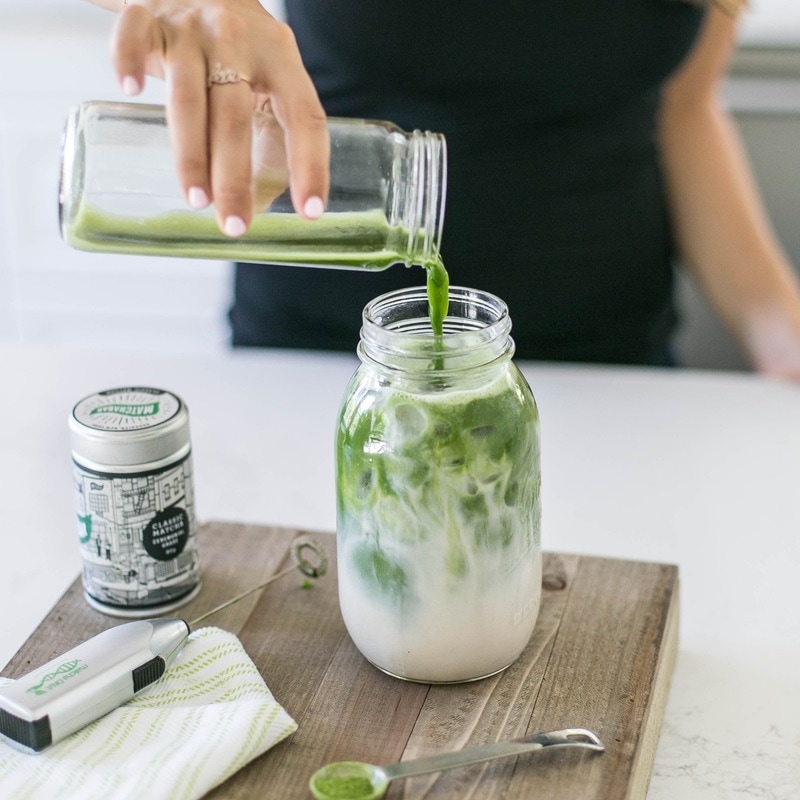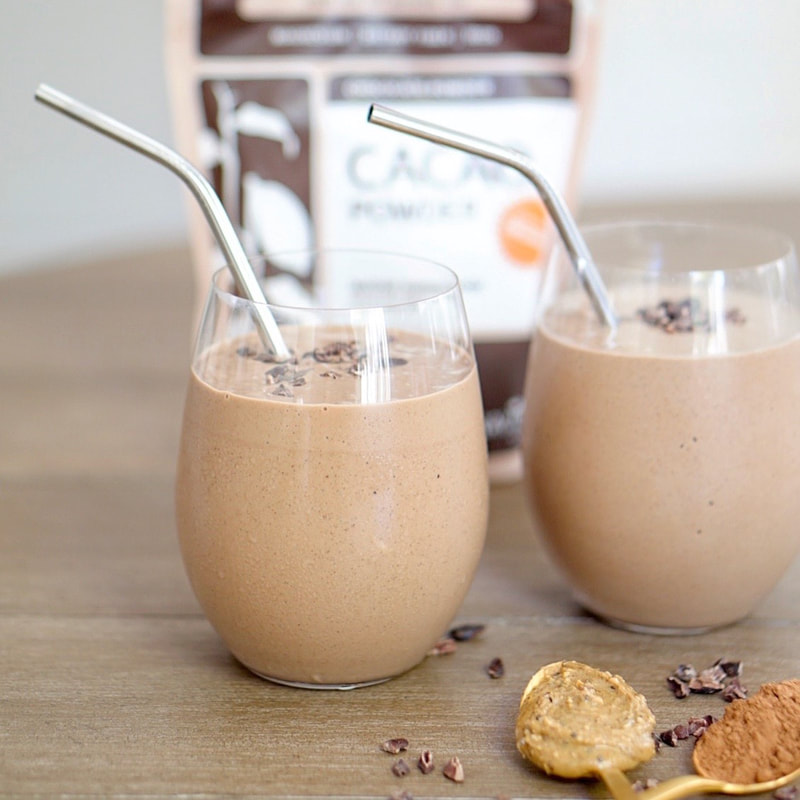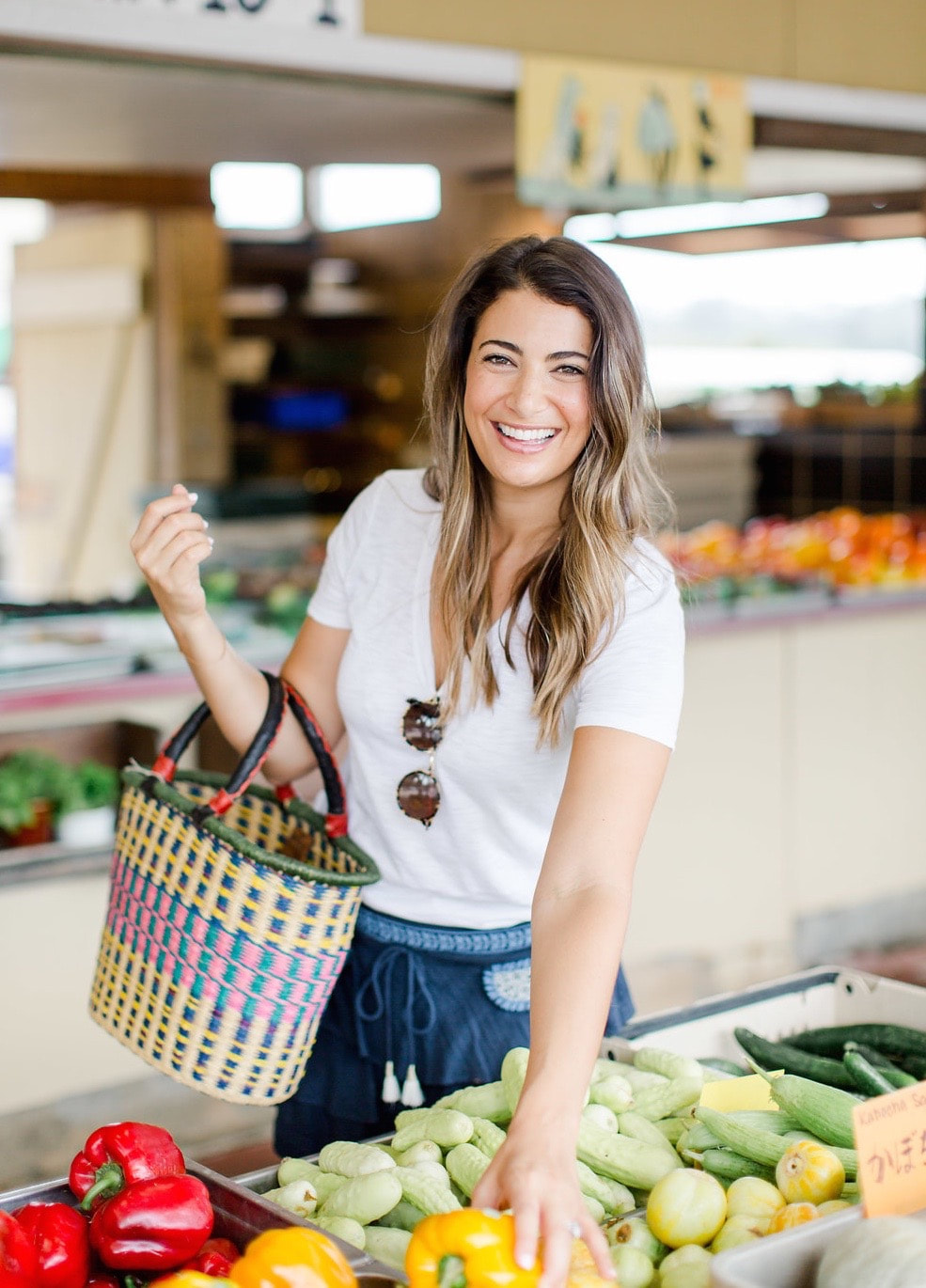|
3/1/2021 Q&A: Introducing Solids & All Things Feeding BabiesI'm super excited to dive deep into the topic of introducing solids & answer all of your questions on feeding your baby with the help of my friend, Jessica Diamond, who is a nutritionist specializing in infants, children, and families, a mama herself, and the co-host of the podcast Meaning Full Living, which is basically a "Cliff's Notes" guide to parenting all about breaking down the overwhelming topics and making them easy and fun to understand so we can live our best lives with our families! She's a real gem, let me tell you! I first mentioned Jessica when I shared my first Introducing Solids post, which talks all about how we got started Noah, tips and advice, recipe ideas, and products you'll love. There were still so many questions after that post, that we decided to do a Part 2 to answer all of them. Let's get into it! Getting StartedQ: How do you know when to start introducing solids? What cues should you look for? Jessica Diamond: Your baby will tell you anywhere between 4-6 months old. You want them to be able to sit up with assistance without flopping forward or to the side and show an interest in your food, spoon, etc. This usually doesn't happen until 5-6 months old, just don't wait until past 6 months old. Don't rush it - you want them to be ready and able to conquer this milestone! Lindsay: Noah started right at 6 months when he seemed really interested in it! Check out our first blog post all about how we got started, with Jessica's guidance! Q: What is your top tip (or 2) for a new mama about to introduce solids? JD: 1. Listen to your babies hunger and fullness cues. Their first foods and the introduction to solids in that first year sets up their eating habits for life, so it's so important to start off on a healthy and happy note. 2. Take our class. I truly mean that and it's not a shameless plug. There's so much to know that's not inherently obvious, yet it is SO simple when you have the right knowledge. Our course gives you everything you need to know to start your baby off right. Q: I’m so anxious about introducing solids! Any tips to make a nervous mama more comfortable? JD: Absolutely, first and foremost - trust your baby! Up until this point, you can't and shouldn't force them to drink more formula or breast milk then they want to, so the same goes for solids. Babies are natural intuitive eaters and that's a skill we want them to keep. Let your baby self-feed as much as possible. The more independence, the better! Also, brush up on infant CPR. This isn't to scare you at all, it's to make you feel more confident and comfortable. When you know how to handle choking, it will help build your confidence to let your baby self feed and explore. Q: Once you start introducing solids, does that mean you’re reducing breastfeeding / formula or do you stick with the same amount of feeds? JD: Such a great question! In the beginning, breast milk and/or formula intake will remain the same. As your baby starts to eat more solids around 8-9 months, their intake of breast milk and/or formula will start to decrease. It's a gradual process and every baby is different. It is important to remember that in the beginning breast milk/and or formula serves as ~95% of the nutritional needs and solid foods is only ~5%, so breast milk and formula are the main source of nutrition during the first year. Q: How many times a day should you be feeding solids based on baby’s age? JD: I love to start slow and ramp up gradually. The most important thing is that you are consistent, meaning once you start, you want to continue serving that meal everyday so starting slow means you won't bite off more than you can chew. I say 1 meal/day 1st month you start, 2 meals/day the second month, and 3 meals/day the third month, so by 8-9 months old, they are getting 3 meals/day. There's no problem with giving your baby 2 or 3 meals from the start, it just tends to be a lot more work and not fit in their schedule between naps and milk feedings. Q: What’s the biggest mistake you see new parents making when introducing solids? JD: Such a hard question! I don't like to think of them as mistakes because it is never too late to change the way you feed your baby! I would say tricking your baby into eating and/or putting a lot of pressure on your baby to eat. Examples of this are sneaking the spoon into your baby's mouth, playing "airplane" (which is so common and so natural to do if you don't know otherwise), really anything to "get" your baby to eat. Baby Led Weaning vs. Purées | First Foods | AllergensQ: When first getting started, do you suggest baby-led weaning, purées, or a mix? JD: My ultimate recommendation is do what you feel confident doing because a confident parent leads to a confident baby. My ultimate goal is to teach parents how to do a mixture of purées and finger foods because there are benefits to both and your baby learns different skills from each. Note: if you're not familiar with baby led weaning, start with our first post about introducing solids! Q: Regarding allergens, what’s the best way to introduce them? How long should you test each one before moving on? Do you have to test each food individually before combining? JD: More recent research supports introducing you baby to solids early and often - that means start between 4-6 months and be consistent with them. Some high allergen foods are peanuts, tree nuts, eggs, dairy and shellfish. Start by offering them alone and in the morning so if your baby has a reaction, you can catch it. Always talk to your pediatrician about high-allergen foods and these recommendations may be different if your baby is higher risk by either having a family history of allergens or ezcema. Q: Is there a method when it comes to order of what you introduce to your baby? Should it be veggies and fruit first, then proteins? JD: For the most part, you can offer your baby any food that is cooked in a safe way in any order you feel comfortable with! If your baby is exclusively breast fed, you want to make sure to offer them foods that are high in iron and zinc as your baby's iron stores become depleted ~6 months (some foods high in iron are beans, eggs, meat and poultry, green leafy vegetables. Make sure to also include sources of vitamin C, such as citrus or berries, sweet potatoes. There are definitely some popular first foods such as avocado and sweet potatoes, but it's completely a parent preference. It used to be thought that you had to offer the same food 3 days in a row, but that is not the case. Q: Thoughts on baby cereal? JD: You don't need to start with baby cereal as it was previously thought, however it can be a great and easy meal for your baby and a good source of iron. You just want to make sure to avoid rice-based infant cereal and purchase organic if you can. Lindsay: Noah never had baby cereal! With Jessica's guidance, we had him focus more on the foods mentioned in the answer above. Q: Should you introduce spices / herbs to baby as well? JD: Definitely, the more spice and flavor (besides salt) you expose them to, the better their palate will be for life. Q: My family eats mostly paleo so I’m wondering what’s healthiest for baby. Are grains important at this age? What about dairy? JD:Such a great question and every family and baby is different. It's always best to expose your baby to a wide array of foods because that will help decrease the risk of allergies as well as set up their palate for life so the more variety, the better. As for dairy specifically, you don't want to give your baby straight milk as the only "milk" they should be having is breast milk ad/or formula until they are 12 months. At the baby stage, you can give them yogurt or cheese as dairy sources. If you avoid dairy in your house or you want to avoid dairy for your child, you do not have to give your baby dairy at 12 months, but you want to make sure you are mindful about it and working with a registered dietitian to make sure your kid is getting enough calcium, phosphorus and fat. Q: Are there certain foods to avoid? JD: Yes! No honey or refined sugar until they are 12 months. That does not mean avoiding naturally sweet items such as fruit, this just means no refined sugar. You also want to go easy on the salt - they can have a little, but avoid salt when you can. When cooking at home, use a variety of seasonings you normally use, but leave out the salt for your baby. Finally, you want to avoid choking hazards such as hard candy, whole nuts, popcorn, big chunks of nut butters, whole grapes and grape tomatoes, and small hard vegetables. These should be avoided until your baby is 4 years old. Difficult Feeding BehaviorQ: How do you handle food-throwing? And water bottle throwing? JD: This all depends on the age of the baby or toddler. In the beginning you reinforce in a positive way, "food stays on the tray", and tap the tray with the silverware. You then set the limit, "when you drop food, it tells me you're all done." When they do it again, (very calmly) end meal time. Some tips, don't draw attention to it, it will only reinforce the behavior. Also don't pick up anything that has dropped and give it back to them - once it drops, it stays there. Babies and toddlers are interested in reactions and fascinated by gravity, so give them other times outside of the highchair that they can experiment with gravity, and stay calm when you hold the boundary (I know it's so hard). Q: How do you handle baby wanting to give his food to the dog? JD: Oh pets. I absolutely love them but it's difficult to juggle a baby or toddler during meal time with a pet around. Best is having the pet separate during meals because it is so tempting to feed a pet and the pet usually loves this! If that's not possible, hold the limit calmly, just like the throwing example. Q: My baby was such a great eater in the beginning, but as he’s gotten older (15 months now), he seems to be getting pickier. How do I encourage him to continue eating all the healthy foods now that he’s more opinionated? JD: It is normal for toddlers to naturally become pickier. It's our job to continue to follow the division of responsibility and stay in charge of the menu - don't let them make the menu, it's too much for their toddler brains. It's so tempting, but don't turn into a short order chef - what you make for a meal is what is on the meal. When they ask for something not on the menu, say "I love (whatever the food is), it's not on the menu now, but will be (and give them a time in the future)." Remember, their appetites vary throughout the day and week so a successful meal is when they eat a little or a lot. Whew! That was a lot of great info... did anyone else just exhale a sigh of relief? Jessica definitely has a way of making the whole baby feeding experience more calm and enjoyable for parents!
For more from Jessica, tune into, Meaning Full Living, the podcast she co-hosts with Hayley Hubbard, another wonderful mama of three who you guys will love! Their website is coming soon, where they'll be offering tons of courses including Starting Your Baby on Solid Foods: Creating Intuitive Eaters from the Start, so you can get all the knowledge and skills you need to start your little one off right. Make sure to sign up for the waitlist here so you don't miss any details! Thanks, Jess, for answering all of our burning questions!
0 Comments
Your comment will be posted after it is approved.
Leave a Reply. |
CATEGORIESPOPULAR POSTSJuly 28th, 2016Almond Milk Matcha LattesJune 23, 2017Almond Butter Cup SmoothieABOUT LINDSAYLindsay is a Holistic Nutritionist who lives for a great meal, a beautiful farmers market, daily matcha lattes, and homemade chocolate chip cookies. Weeknight Bite is Lindsay's happy place where her nutrition practice, simple recipes, and wellness tips come together to inspire you to live a healthy, balanced life.
|















